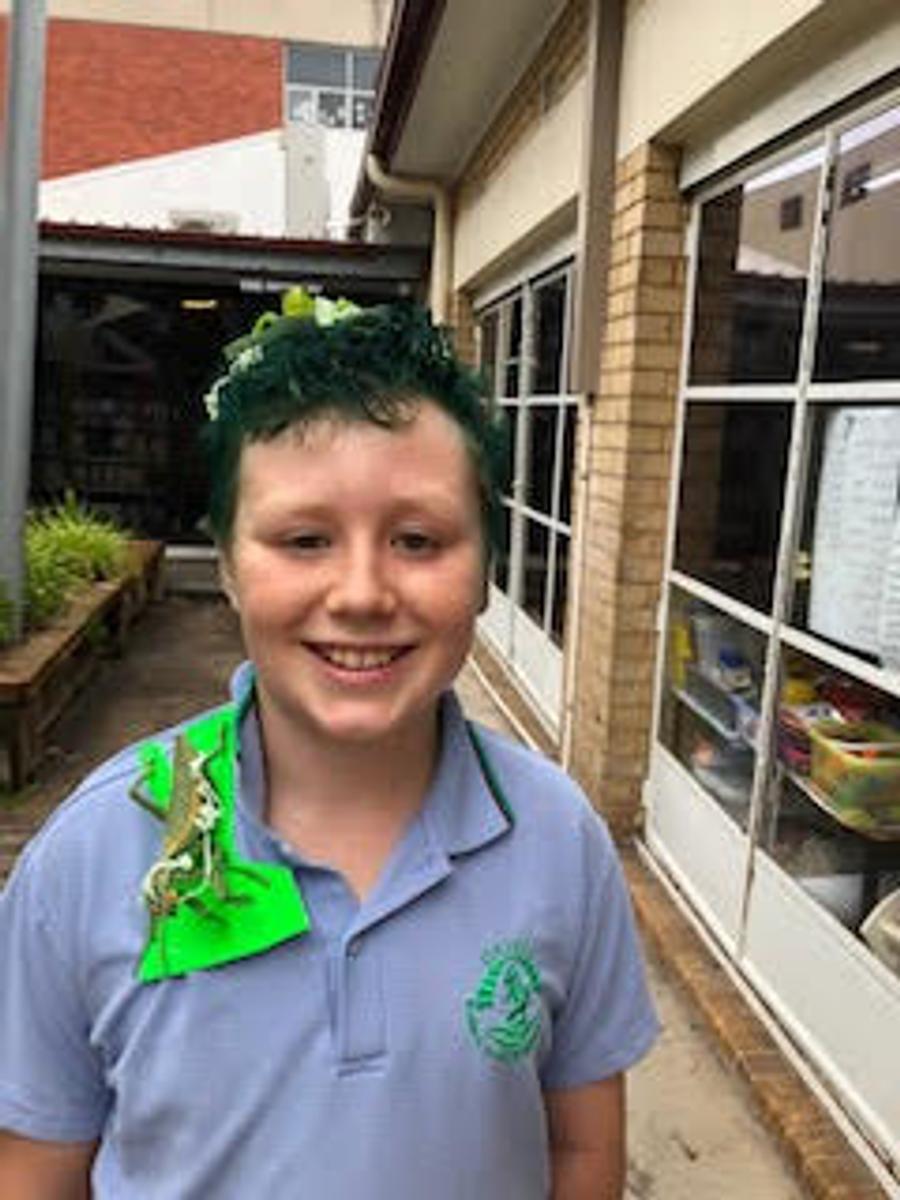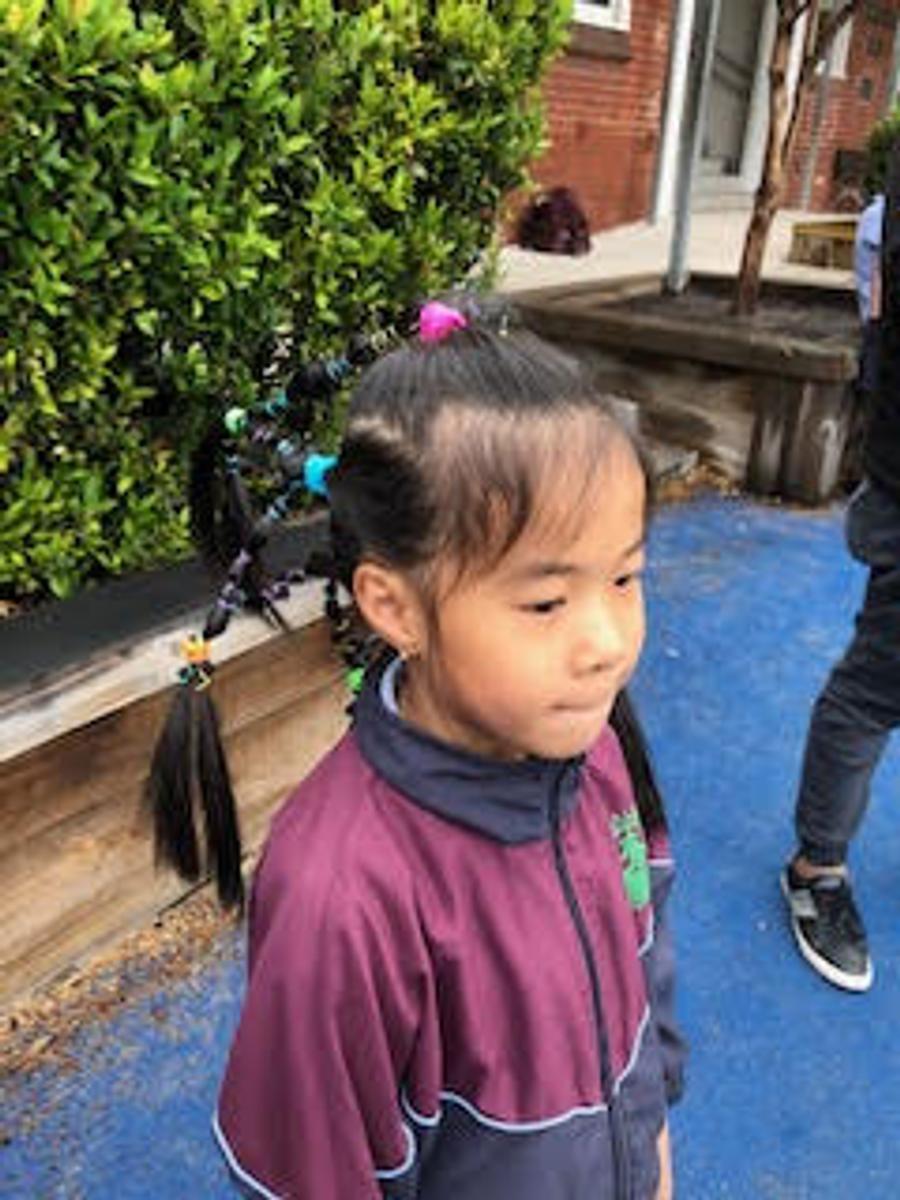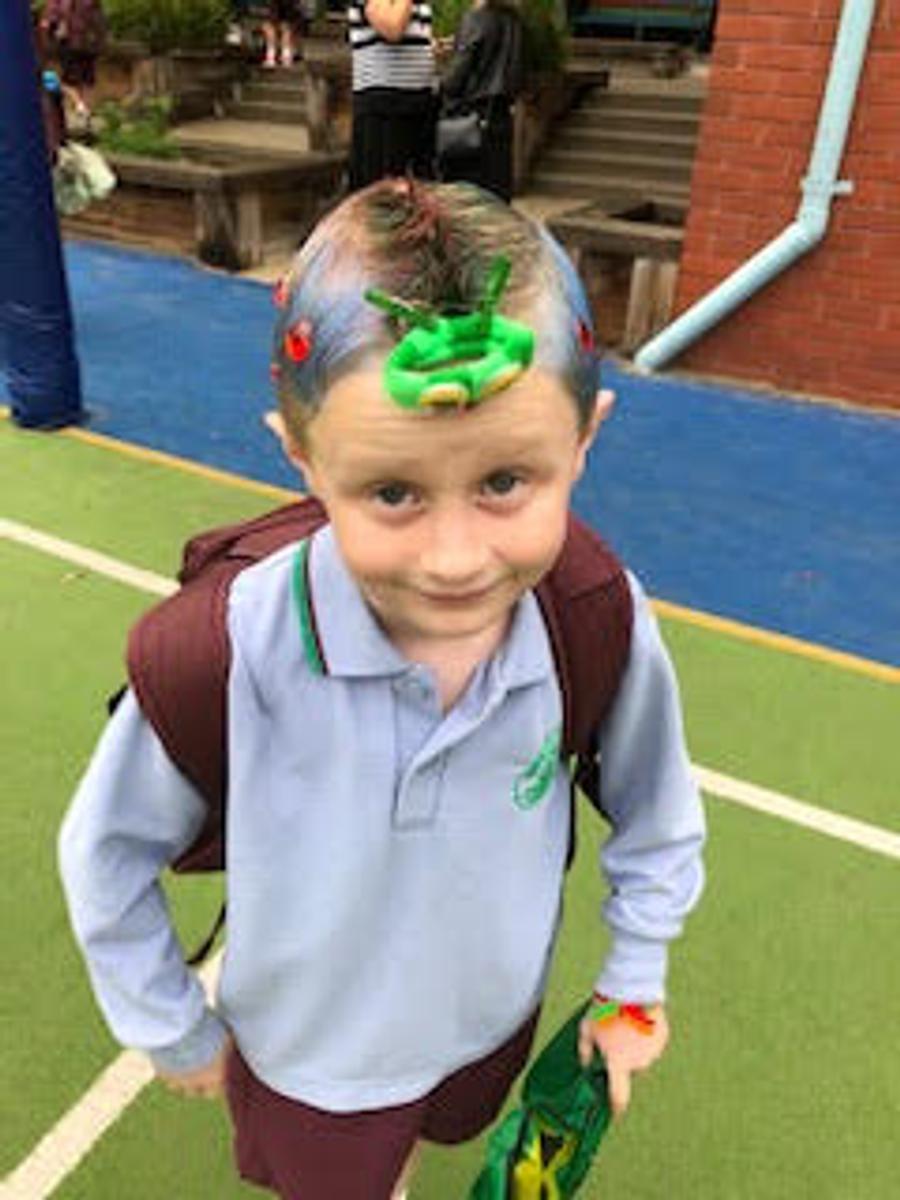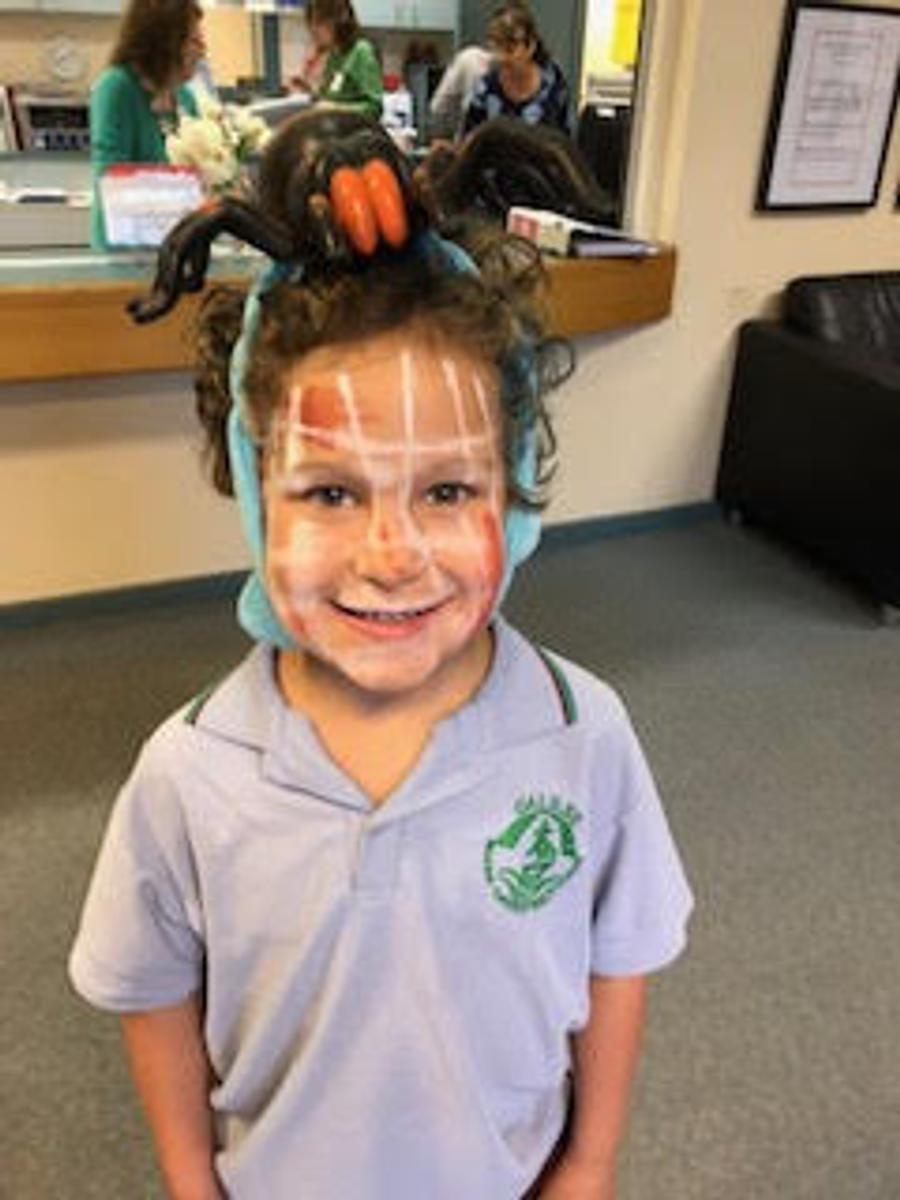Student Wellbeing
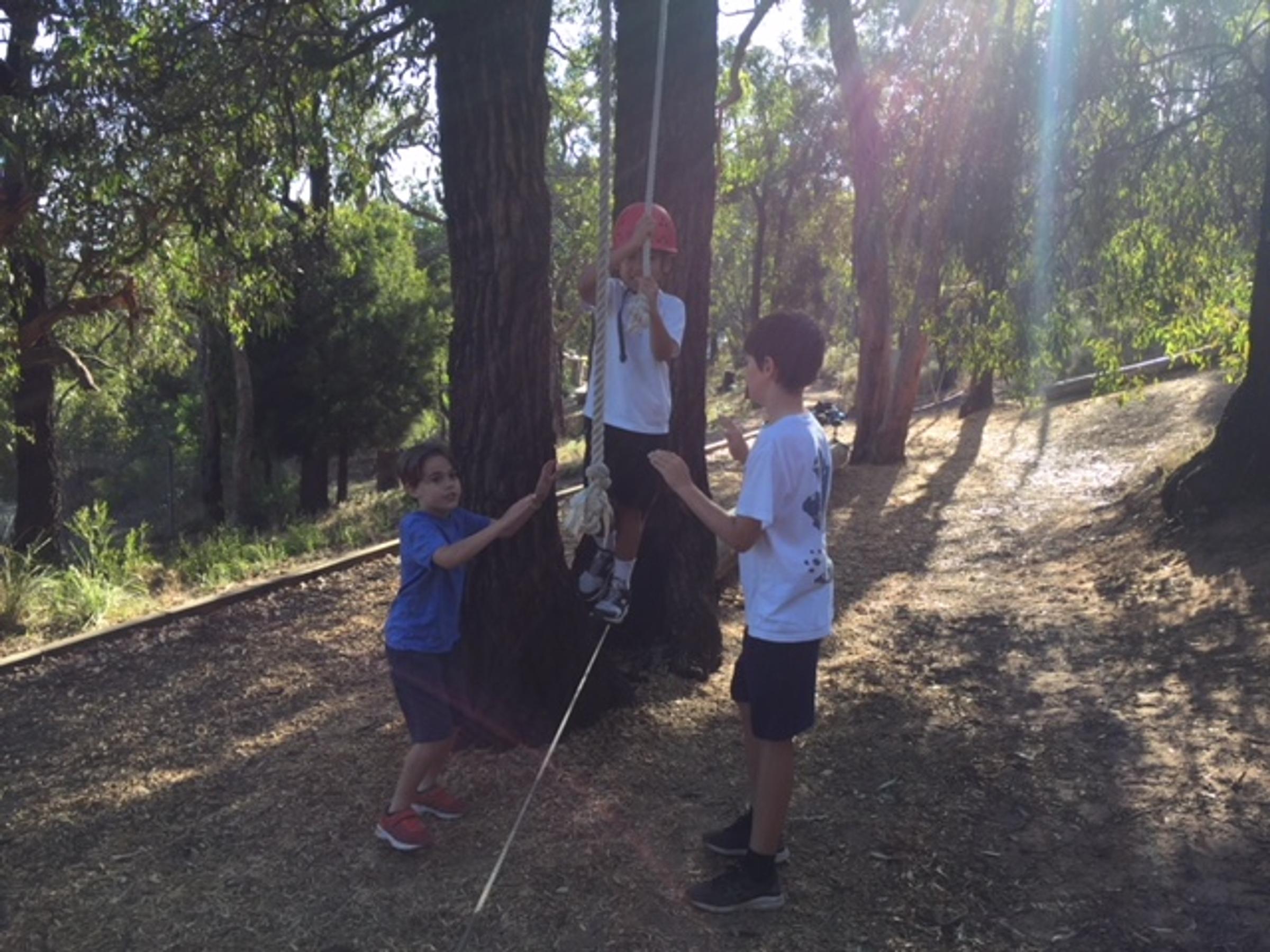
Crazy Hair Day
Congratulations to all the students and teachers who enthusiastically participated in the CRAZY HAIR DAY & also to the parents, who created such wonderful hairstyles!
The students donated $377.00 for research into Cystic Fibrosis.
Many thanks to all.
Julianne Price
Student Wellbeing /Student Services Leader
Ph. 96992928
email: jprice@gsmelbournesth.catholic.edu.au
Dear Parents,
Several years ago we were lucky enough to have Dave Vinegrad come to Galilee to conduct a very successful Parent Information Evening.
I came across the Handout he gave to our parents recently, which is still so relevant.
Please have a read and contact me if you would like to discuss it.
How do I talk so my kids will listen, and listen so my kids will talk?
- By being respectful - talking and listening, we help those involved to be valued and to be worthy participants in making things right – repairing harm
- The aim is to re-build and repair any relationships that have been strained by the wrongdoing
- Promote the development of empathy for those that they have affected and those responsible - to move the focus from them as wrongdoers to them as actors in repairing the harm - to appreciating the ‘other’ by way of story telling and engagement
- Encourage story telling necessary to re-build positive identities and to encourage children to talk and explain rather than feel shamed and worthy of punishment.
About respect
Respect is one of the key values and is the ‘currency’ of restorative relationships.
Respect is the foundation to any effective cross-generational communication.
For Gen Y’s respect must be earned and will tend to be given based on whether it is relationship driven and reciprocal and not on title or role.
In this two way exchange it will often be school staff and parents who need to take the first step. It is critical that adults understand what makes students feel respected and also what will communicate respect in return – in many cases young people don’t mean to show disrespect to older generations but fail to understand how their actions and attitudes are perceived.
The Restorative Chat
- What happened?
- What were you thinking when you……….?
- What have you thought about since?
- Who has been affected?/In what ways?
- How can you make things right?
- What help do you need from me?
When things go wrong at school
Every parent wants the best for their children, and that includes having great experiences at school. Despite best teaching practice things do go wrong at school. Most kids experience learning difficulties from time to time. Conflict and peer rejection are a normal part of school-life. The developmental nature of childhood means that there will always be some turbulence, particularly around key transition ages, such as the start of adolescence.
During these times young people frequently experience a dip in their learning as well as significant relationship difficulties. Students will often come home from school with grievances, and call on their parents for assistance.
Your approach as a parent when your child has difficulty at school makes huge difference to their resilience, and their future relationships with teachers and peers.
Here’s a six-point checklist to help you stay focused and be effective if your child experiences difficulty at school.
1. Stay calm and rational
It’s natural as a parent to protect, or defend your children, particularly when you think that they’ve come in for some unfair or poor treatment. But acting when you are full of emotion is not always smart. Rather than getting on the phone straight away to organise a meeting at school, take your time to think through how you might assist your child.
2. Get the all facts
Once you’ve calmed down, then get the facts about the situation. Kids are faulty observers and often only see one side of a story when there’s a problem with a teacher or a fellow student. They sometimes can’t see that perhaps they may have contributed inadvertently to a dispute at school, or perhaps said something that may have upset a teacher. It’s the job of parents to help their daughter to process what happen in an incident, so that all the facts emerge and understand their place in any problem. Ask good questions to help the full story emerge.
3. Assess whether to go to school or not
Kids, like adults, like to vent and will benefit from having told their side of a story to trusted source. Often problems can be dealt with at home, simply by talking through an issue, and giving kids some common sense tips to help them cope.
If your child has a recurring problem that he can’t solve himself, or you think adult intervention maybe needed to sort out a relationship issue with a teacher or peer, then consider meeting with your child’s teacher or year level coordinator.
4. Go through the right channels
Approach the school calmly, going through the school office, or directly to your child’s teacher if that is the usual protocol. If you have already established a relationship with the teacher concerned, then it’s often easier to approach them directly.
5. Look for solutions rather than blame
Parent-teacher meetings usually get nowhere when either party blames the other. State the problem as you see it and view your child’s teacher as an ally, not a foe. “I’m really worried about Jeremy. He’s been acting strangely lately and I need some help” is the type of approach that will elicit a helpful response. Talk about your concerns and keep the discussion focused firmly on what’s best for your child. Listen to your teacher’s viewpoint, valuing a different perspective.
6. Stay in touch
Be realistic with your expectations, remembering that some problems can’t be solved to your satisfaction, nor will they be resolved straight away. Be prepared to work alongside your child’s teacher over the long-term, which means you need to keep communicating with each other.
Parenting is easy when things are going well, but testing when your children struggle or experience difficulty. Stepping back and taking a long-term, reflective view is often the best approach when your child experiences difficulty at school.
Parenting metaphors from Michael Grose
Helicopter parenting: Parents who are always hovering. Not giving kids sufficient space to solve their own problems.
Lawnmower parenting: where parents smooth the way by mowing down life’s bumps.
High investment parenting: When parents live out their own goals through their kids.
Submarine parenting: Neglectful style where parents disengage from most tasks.
Free range parenting: Giving kids a great deal of space and freedom.
Hippo parenting: When parents squash their kids (like a hippo) to prove a point!
Tiger parenting: Strict parenting style that promotes excellence and perfection in kids.
Pussy cat parenting: The name says it all. When parents are a soft touch!
Jelly fish parenting: same as the pussycat!
Shoulder-to-shoulder parenting: More a communication method than a style. Doing something side-by-side with kids encourages conversations.
Brickwall parenting: talk the hand ‘cause the face is not listening style.
Backbone parenting: the hard worker who communicates, negotiates, and models desired behaviours and attitudes.
The authoritative approach offers a mix of discipline and warmth that is deemed necessary for kids to thrive, thus it’s been dubbed the Thriving approach. Here are five characteristics of the Thriving (authoritative) style:
- Parents set limits and boundaries that expand as kids get older and become more capable.
- Parents use consequences and other tools to teach kids to behave well and develop a sense of personal responsibility.
- Children receive a great deal of encouragement (comments directed at improvement, effort and contribution rather than directed at their ability) and quality feedback about their efforts and behaviour that helps them improve.
- Parents encourage empathy in children by recognising their emotions and giving them permission and assistance to express their feelings and help them resolve relationship problems.
- Parents put a range of measures in place to develop a sense of generosity of spirit and give and take so kids think ‘we’ rather than ‘what’s in it for me?’ This sense of community that authoritative parenting promotes is the real strength of the style.









